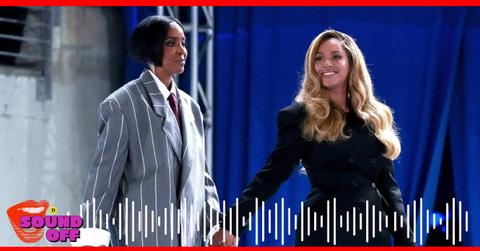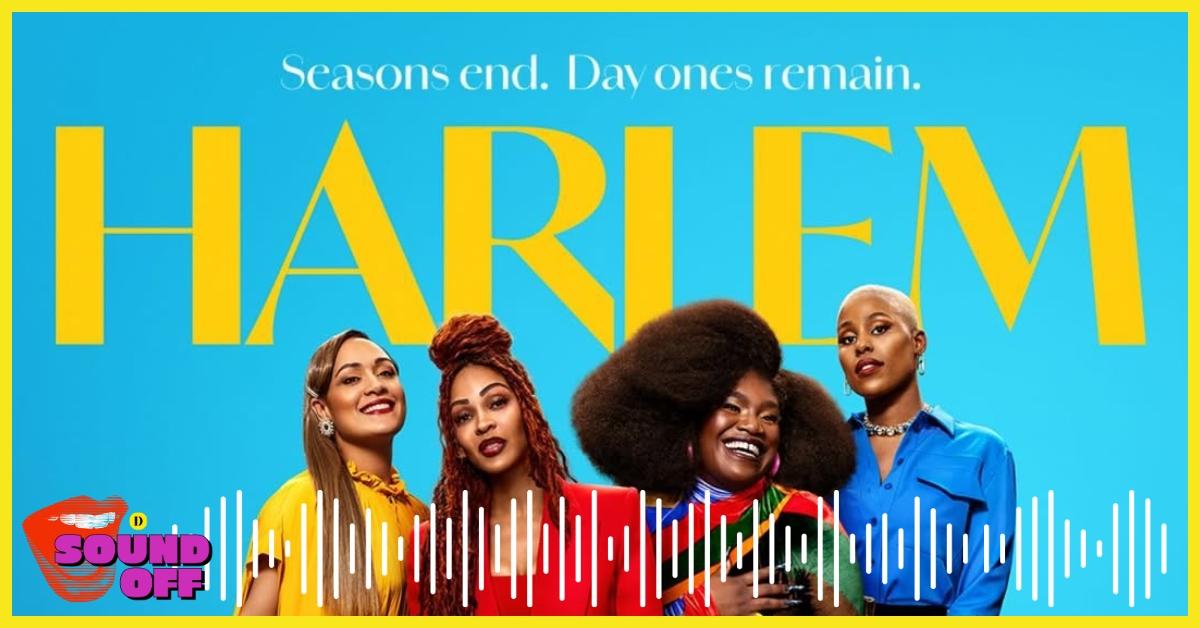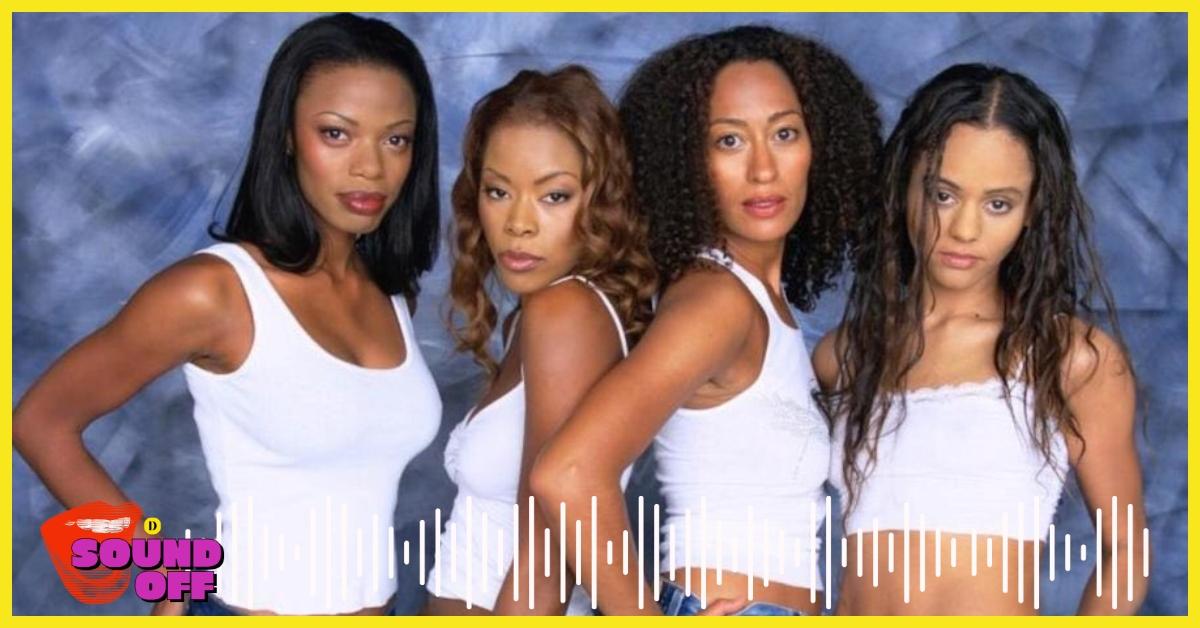Sound Off: Black Female Friendship Is Activism and Is Necessary in Yet Another Era of Uncertainty
As Black women enter more unprecedented times, we have proven time and time again that we are stronger together.
Published Feb. 13 2025, 9:15 a.m. ET

Chaos ensued on the eve of President Donald Trump’s January 2025 inauguration. TikTok vanished for less than 24 hours, and those who didn’t vote for him on Nov. 6 sat fearful of Trump’s inevitable plans to change multiple structures in the U.S. that directly affect Black, brown, and LGBTQ+ people.
Jan. 19 was a day of juxtaposition for me.
As I dealt with anxiety and disappointment about the future, I also celebrated a special day. I had rescheduled my birthday brunch for that day, and I was surrounded by my wife and my friends — all highly educated, highly accomplished Black women.
While we were present at the celebration, we also expressed our frustrations with a society we all know too well wasn’t made for us. But, through the anger, we affirmed one another and brought joy to yet another unprecedented time.
It’s never lost on me how grateful I’ve been to have fellow Black women as friends. I have friends of many cultures and races and equally love and value those friendships, but there is a reason Black women love seeing our ki kis and girls' trips in the media. It’s because friendships among us can be healing, drama-free, and a form of activism.
During this time of pouring back into our communities, leaning on like-minded people with similar lived experiences helps restore and activate us to do our activism in our respective communities.
Healthy friendships between Black women heal through shared experiences and affirmation.
The influx of “Black-owned brands to support” lists that came out shortly after Trump’s efforts to dismantle Diversity, Equity, and Inclusion programs proves that many Black women consumers want to give to CEOs who look like us. We prove this every time influencers like Tabitha Brown sell out at Target moments after announcing her exclusive line with the company or when Beyoncé announces a tour.
We collaborate and support each other in similar fields. The 40-plus-year friendship of activists Angela Davis and Toni Morrison is a testament to that. Angela and Toni, who both used their voices and written works to speak to the Black experience in the U.S., maintained a close and supportive friendship until Toni died in August 2019.
Their friendship blossomed when The Bluest Eye author met with the activist to pen her 1974 autobiography, Angela Davis: An Autobiography. The book was a two-year commitment that began two weeks after Angela was indicted for her connection to Jonathan Jackson’s armed attempt to free his older brother George Jackson from San Quentin State Prison, per Public Books.
In 2014, Angela admitted in an interview with News Center that she initially didn't want to write an autobiography when she was still in her 20s.
However, she shared that having Toni as a supportive and passionate mentor and friend helped her to tell her story how she wanted.
"It was quite an amazing experience for me to have her as a mentor," Angela said of Toni. "My experience with writing was primarily writing about philosophical issues. I really had to learn about how to write something that would produce images in people’s minds that would draw them into a story."
Toni, whose real name was Chloe Wolford, also shared in the same interview that her friend gave her an opportunity before she became the legendary writer she is today. The encouragement the women had for one another in the beginning stages of their careers represents how Black women can be stronger when we choose connection over competition.
Representation is resistance.
Similarly to seeing bonds between Black women in real life, especially among the community's changemakers, we must continue to see Black women and femme friendships in the media. For some reason, hit TV shows centered around Black friendship come every decade and never stay around for long, as the six-episode series finale of Prime Video's Harlem proved in February 2025.
Despite Harlem's abrupt departure, the cast displayed solid friendships between Black women on and off-screen. The cast — Meagan Good, Grace Byers, Shoniqua Shandai, and Jerrie Johnson — said filming the show allowed them to form a sisterhood that will last long after the show.
"Harlem has been one of the best experiences I've had in 30+ years in this industry," Meagan told Ebony ahead of Harlem's series finale. When you talk about sisters, these girls like, these are my sisters. I love them. They love me. To be able to live in this character of Camille and to be able to pull things outta myself that other people hadn't seen from me … and to be able to surprise people even after this long in the business is the most gratifying feeling."
Shows like Girlfriends and Harlem are among the shows that champion Black female friendship, including its flaws. The women in these stories were there and always celebrated one another’s wins while being strong pillars of support despite them being a work in progress. Seeing them onscreen was a blueprint for how friendships among Black women evolve.
Watching these examples of friendship in the media gave me a glimpse of what adult friendship can look like and showed me that friendship doesn’t always have to be perfect or filled with outings. The best friendships are those you know will be there when your world is on fire and come to your home with an extinguisher. And food.
The media's role in activism has always been at the forefront of many causes, from the news covering protests to TV shows and films discussing racism, sexism, homophobia, etc. In a time when Black History Month and Pride Month are being scrubbed off of calendars, Black women must see themselves in the community.
Whether we're seeing us on the frontlines like Toni, Angela, or other activist friends Tamika Mallory and Brittney Packnett or watching characters have authentic conversations onscreen, Black women coming together and supporting one another's successes needs to be represented in the media. Thankfully, a study from There Project shows the representation of Black women in media is changing, though there's always room for growth.
While Black female characters in popular films nearly doubled in the last decade, a study from The Representation Project showed that while the presence of Black female characters increased up to 16.7 percent in 2023, Black female actors were reported to be more prone to being depicted as violent than their white counterparts and experienced colorism.
As society continues to tell Black women who they are, there's never been a better time to prove Black women and femme friendship valid, healing, and will always be necessary.
The era we're in requires us to rest and not overextend ourselves or our mental health. But the right people will encourage you to preserve yourself and won’t make you feel like less of a friend for doing so.
The times are changing, and not in the best ways. Black women, find your people and celebrate them in ways that don’t deplete you and bring you the support and community you deserve.

